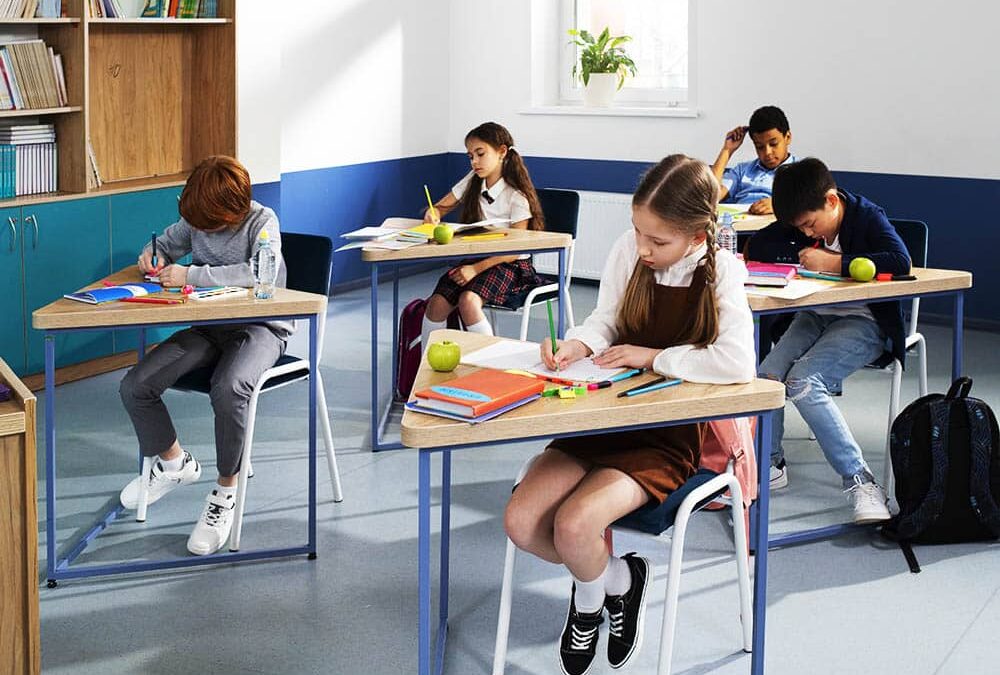Education is a fundamental right of every child, regardless of race, gender, or ability. Special education is a vital part of this right, ensuring that children with unique learning needs and disabilities receive the support and education they deserve. Sadly, many children with special needs continue to be marginalized in education systems worldwide, depriving them of the chance to reach their full potential. In this article, we explore the reasons why special education must be a priority for everyone, and what we can do to ensure that every child receives the education they deserve.
What is Special Education?
Special education is the provision of specialized support, services, and education to students with unique learning needs and disabilities. This might include students with physical disabilities, cognitive impairments, mental health conditions, or sensory disabilities, such as blindness, deafness, or autism.
Special education aims to provide the necessary accommodations, adaptations, and modifications to help students learn and grow at their own pace while addressing their individual needs. This might include adapting curriculums, providing assistive technologies, offering one-on-one support, and creating inclusive learning environments.
The Importance of Special Education
Special education is essential for ensuring that every child has the opportunity to learn and grow, regardless of their abilities. This kind of education helps children with disabilities adapt to learning environments that might be challenging for them. It provides them with the necessary support to succeed in their academics, build social skills, and become independent, contributing members of society.
Furthermore, special education offers a way for parents and caregivers to advocate for their children’s rights and ensure that their unique needs are acknowledged and fulfilled. It allows them to work with teachers and school administrations to develop individualized education plans that accommodate their child’s strengths and weaknesses.
Without special education, children with disabilities may struggle to progress in their studies, develop self-confidence, or achieve their goals. They may become disengaged and disheartened, leading to behavior issues, mental health challenges, and becoming less likely to complete their education or achieve successful life outcomes.
The Challenges Facing Special Education
Despite its importance, special education faces numerous challenges that prevent it from fulfilling its purpose adequately. The lack of financial and human resources, insufficient training and support for teachers, systemic biases and discrimination, and a lack of legal protection and advocacy are reportedly the primary issues faced by special education.
These obstacles can result in unequal educational opportunities and outcomes for children with disabilities. For example, research has found that children with disabilities are more likely to be suspended or expelled from school, receive lower quality education, and perform poorly on academic tests than their non-disabled peers.
Furthermore, systemic barriers mean that children from marginalized communities, such as low-income families, racial and ethnic minorities, and those living in rural areas, are more likely to be excluded from special education or face discrimination within it.
What Can We Do to Ensure Every Child Receives the Education They Deserve?
Ensuring that every child receives the education they deserve requires a concerted effort from everyone involved in the education system. Here are some essential steps we can take:
Advocate for Access to Education for Children with Disabilities
Parents, caregivers, and community members can play a critical role in advocating for children with disabilities’ right to access quality education. They can work with schools, local officials, and education policymakers to demand adequate funding and resources for special education, enforce anti-discrimination policies, and create inclusive learning environments that accommodate the unique needs of all children.
Provide Professional Support, Training, and Resources for Teachers
Teachers require specialized training to effectively meet the diverse needs of children with disabilities. They require comprehensive training in the laws and policies that govern special education, how to teach children with diverse abilities, and how to use different teaching strategies and technologies effectively.
Education systems must provide sufficient resources, personnel, and ongoing training and support to ensure that teachers are adequately equipped to meet the diverse needs of their students.
Create Inclusive Learning Environments
Inclusive learning environments help to create a more supportive, accepting, and diverse educational space, where children of all abilities feel valued, respected, and treated fairly. Schools can create inclusive classrooms by creating policies that ensure that all children have access to the same education, integrating diverse perspectives into the curriculums, and providing accommodations and assistive technologies that meet the unique needs of each child.
Advocate for Policy and Legal Changes
Policy and legal changes play an essential role in ensuring that every child has access to quality education. Advocates can work with policymakers to create and enforce laws and policies that protect the rights of children with disabilities, promote inclusive education, and provide adequate funding and resources to the education system. Additionally, they can advocate for better legal protections for children with disabilities, including protecting them from discrimination and advocating for their rights to accessible education.
Conclusion
Ensuring that every child receives the education they deserve requires a concerted effort from everyone involved in the education system. Special education is crucial for promoting academic success, building self-esteem, and promoting the social and emotional development of children with diverse abilities. However, barriers such as insufficient resources, systemic biases, and discrimination, and lack of legal protections prevent special education from achieving its full potential. By advocating for access to quality education, providing training and resources, creating inclusive learning environments, and advocating for policy change, we can work towards a more equitable and just education system that benefits all children.
- Act Now or Lose Forever: The Devastating Impact of Species Extinction - 21 de junio de 2023
- Act now or watch them disappear: The urgent need for endangered species conservation - 21 de junio de 2023
- A Decadent Symphony for Your Taste Buds: Gastronomic Revolution Unleashed! - 18 de junio de 2023
